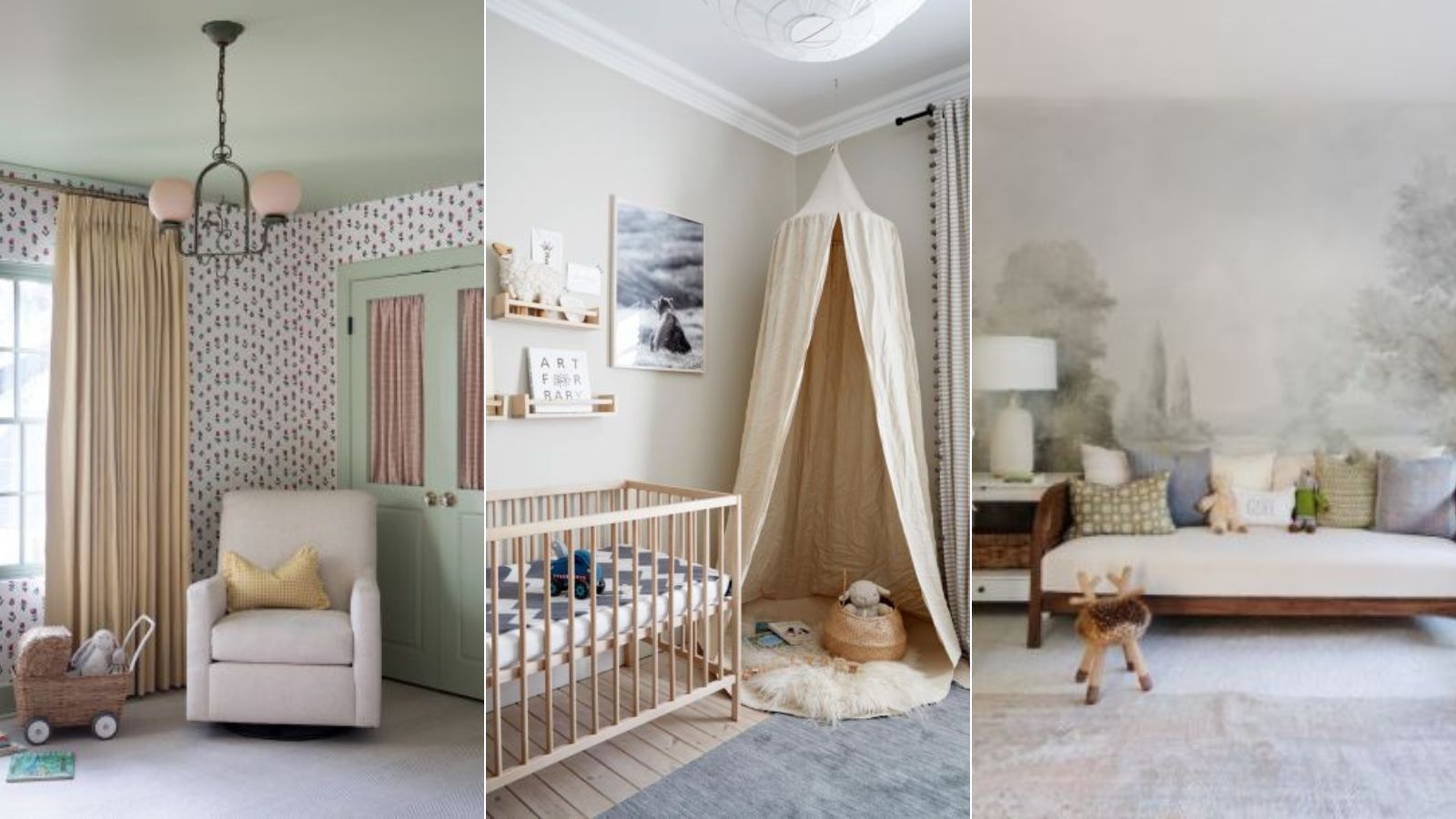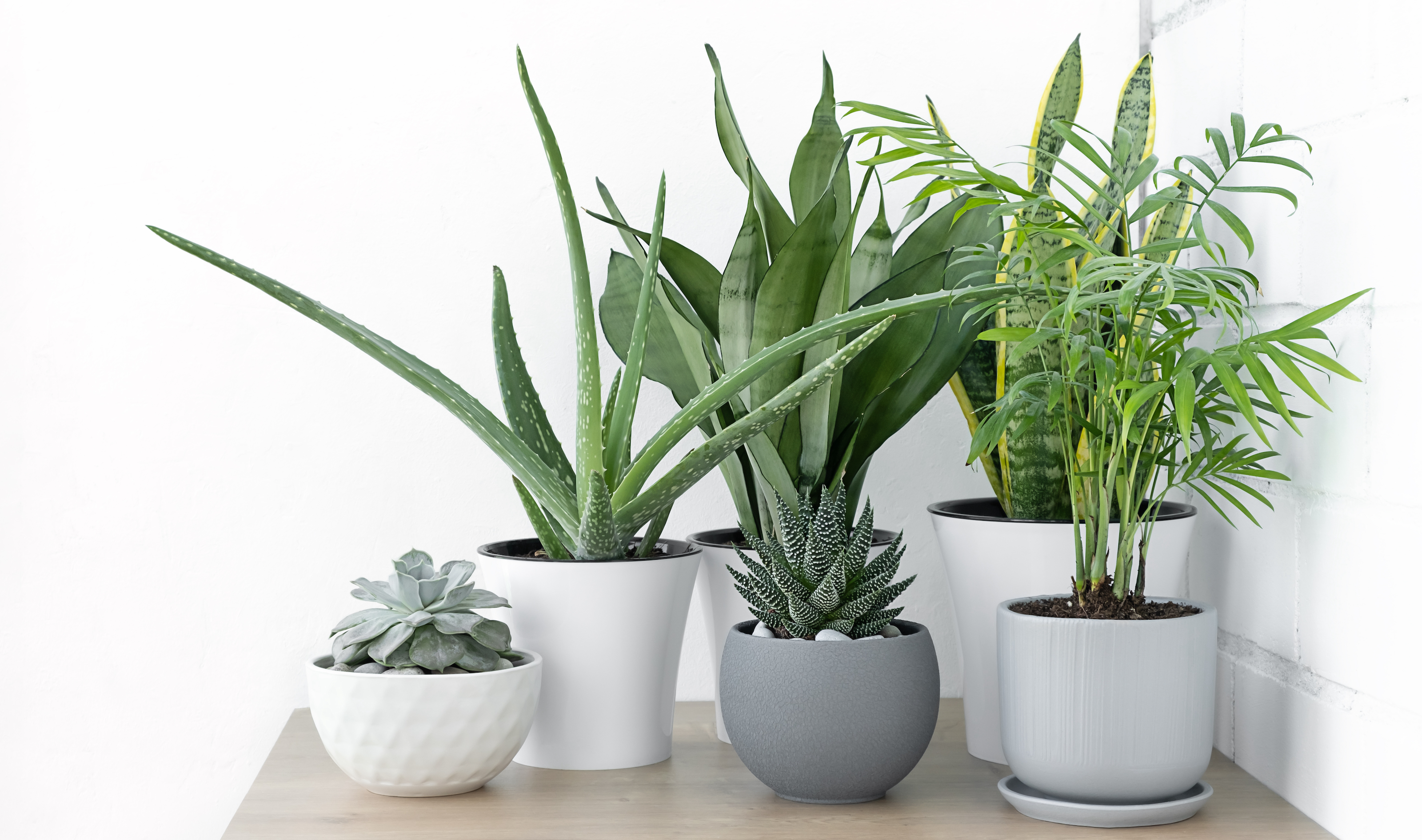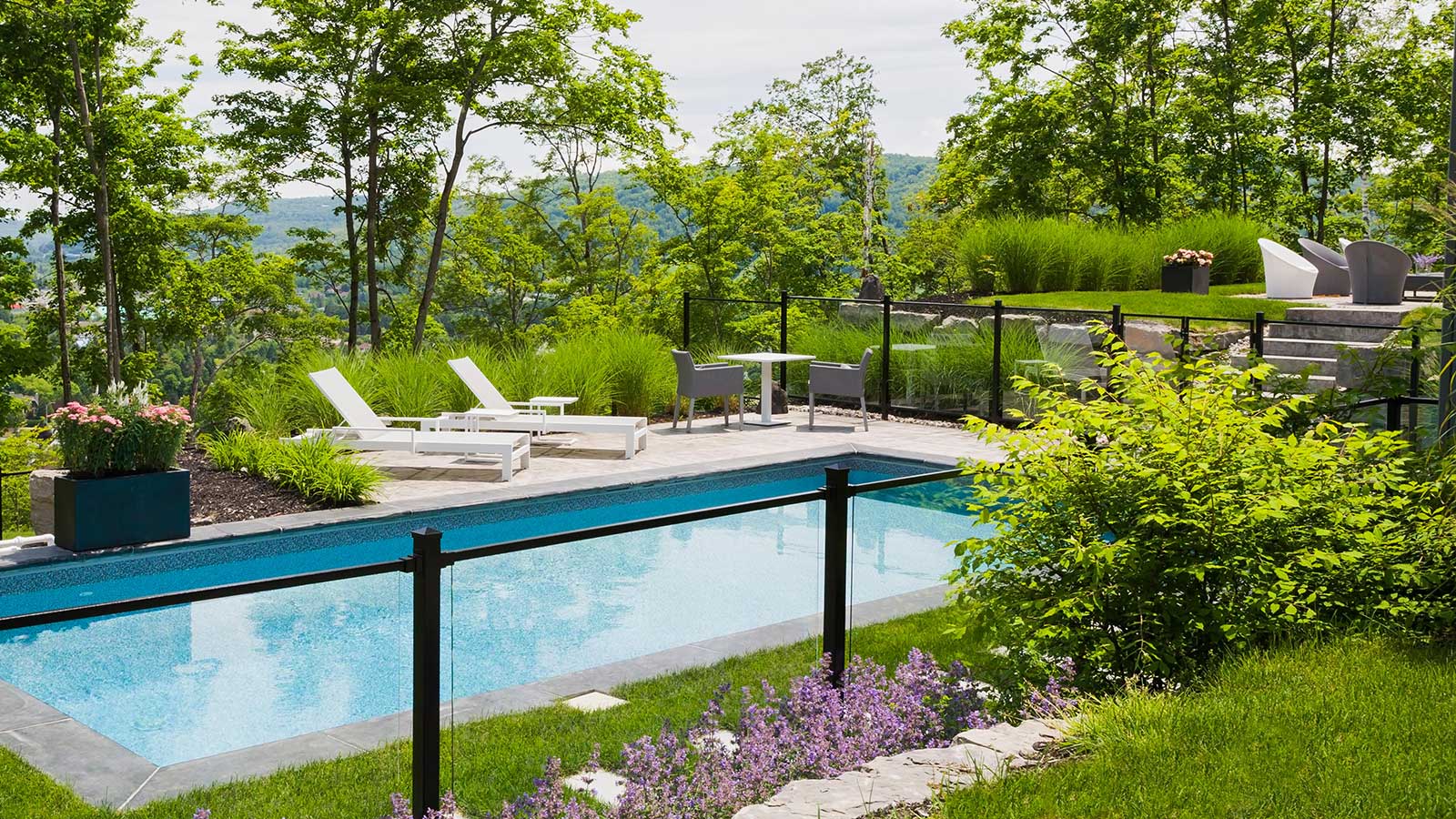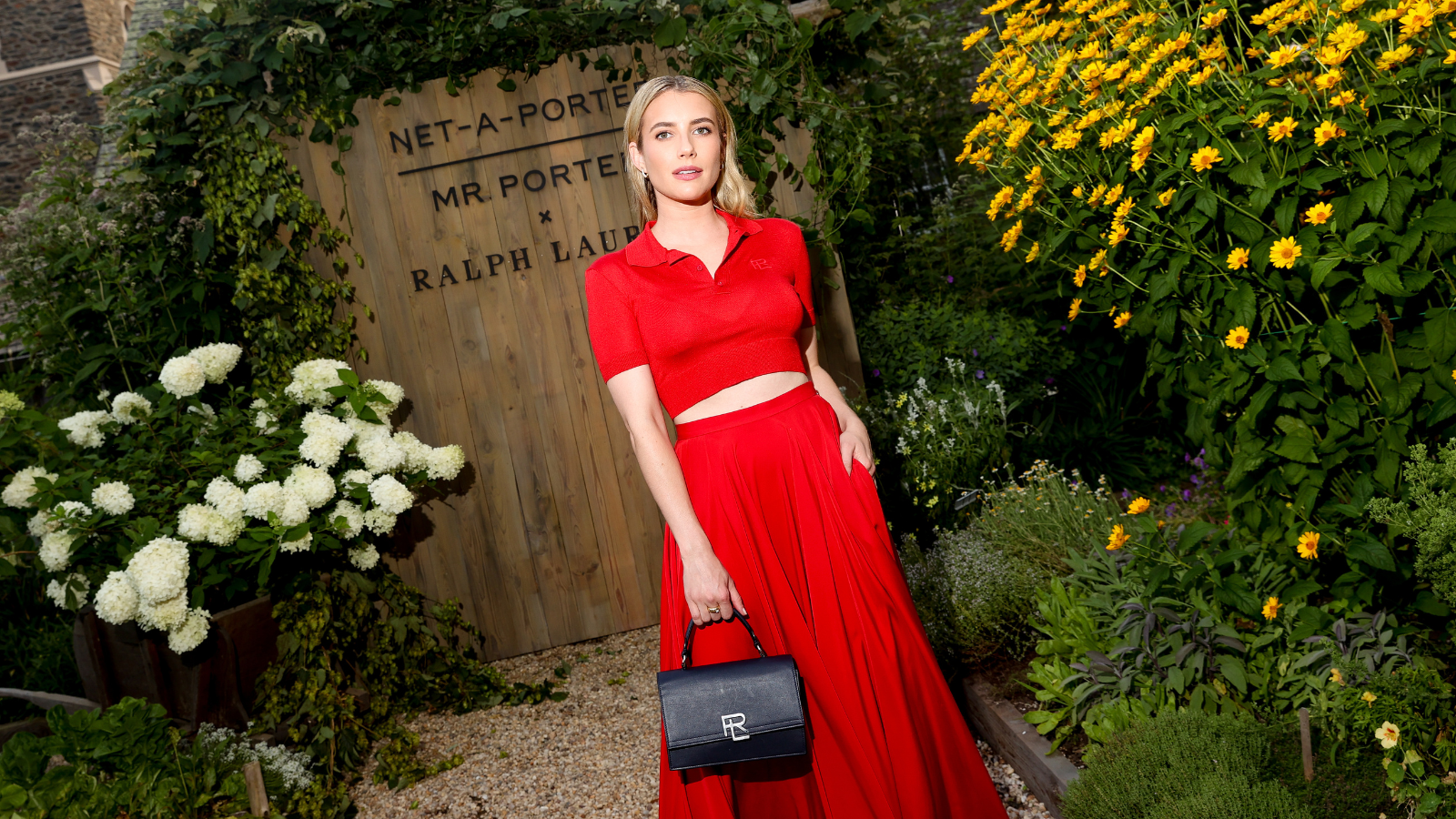
Nursery color schemes – 8 spaces to soothe your baby to sleep
Decor Ideas. Project Inspiration. Expert Advice. Delivered to your inbox. Thank you for signing up to Homes & Gardens. You will receive a verification email shortly. There was a problem. Please refresh the page and try again. It's easy to get carried away with aesthetics or perhaps even caught up in the gender debate, yet nursery color schemes need to deliver on a practical level, too. Ideally, a nursery's color should look beautiful, be soothing to encourage sleep, and easy to keep smart. A nursery color scheme will also need to adapt easily as the baby grows into a toddler. With some thoughtful planning, it's possible to choose shades that are both fun and functional. We asked interior designers for delightful based around color choices. 'Designing a nursery can be bittersweet because they are temporary in nature,' says Louisville-based interior designer, , founder, Bethany Adams Interiors. 'With that in mind, I still like to have fun with the design, while thinking one step ahead. 'For example, when the crib is no longer required, will the nursery become a kid's bedroom or perhaps (as in my case) the primary bedroom closet you've always dreamed of? Having a clear plan can be cost effective as an entire overhaul may not be necessary if, say, you've chosen a wall color that works for a variety of spaces.' Whether you're looking for , or , the color schemes below are easy to update without redecoration as your baby grows. , particularly pale ones, such as stone, beige, and gray, might not be your go-to when choosing nursery colors, but with stereotypical shades, such as pink and blue, falling from favor, and neutrals being so easy to accessorize and update, they're a great choice. A neutral palette of warm, earthy hues is also soothing for the nervous system – both yours and baby's. Being surrounded by calm colors not only looks beautiful, it will be beneficial, when you're putting a crying baby to bed. It also offers more scope for accessorizing the room now and adapting it as they grow. 'The trend seems to be a more gender-neutral nursery color palette these days, which I love,' says Los Angeles based interior designer, , founder of The Layered House. 'I naturally gravitate towards earthier tones and to see colors like taupe, sage green, and burnt amber accents being used over the conventional baby blue and pale pink opens the door to so many more unique design opportunities.' If your nursery is going to have to morph into a kid's room within a couple of years, think ahead. With the decorating foundations in place, the room can easily transition with just a few tweaks. 'Consider a "new neutral", such as a soft green,' says , Editor in Chief, . ' tells us this is the most soothing of colors, along with pale blue, and it's easy to pair with other soothing colors and even playful , such as those above. Choose classic prints over story-book characters for surfaces, as these will look good and stay relevant for longer.' 'Stripes, ginghams, plaids and the occasional floral are our go-tos for nurseries and children's spaces because they can be easily layered with each other and plain colors to create whimsy,' says Dallas-based interior designer, founder of Shannon Eddings Interiors. 'We typically avoid graphic prints or anything overly trendy. I advise parents to consider function as well so that we ensure the space is adaptable for the future as the child grows. 'Never go overboard with a baby theme in my opinion. It feels like a waste of resources because children tend to have strong opinions on their clothing and surroundings as early as two years old.' Lucy Searle has written about interiors, property and gardens for over 30 years, starting within the interiors departments of women's magazines before switching to interiors-only titles in the mid-1990s. In 2018, Lucy took on the role of Global Editor in Chief for Realhomes.com, taking the site from a small magazine add-on to a global success. She was asked to repeat that success at Homes & Gardens, where she has also taken on the editorship of the magazine, which is the UK's oldest interiors magazine at 103 years old. Lucy is a serial renovator and also owns rental properties in the UK and Europe, so brings first-hand knowledge to the subjects she oversees. Warm, spice shades are having a moment, and while not a typical choice for a nursery, they are incredibly warm, welcoming and cozy on walls and window treatments, making them an obvious choice for . If you don't dare to put them on walls – why not match the palest of spice shades with deeper colors for window treatments? Black-out shades, heavy drapes and are the number one choice you can make for a nursery, and it's here that you can introduce these spicy shades. 'In any nursery (or child's bedroom), I make a point to specify blackout window treatments that operate independently of whichever decorative treatment I've chosen. This is usually shades, but sometimes shutters,' says Bethany Adams. 'Especially in the first year of a baby's life when those shades will be going up and down a minimum of four times a day, you want something that will be easy to operate, durable, and overall a real workhorse. Invest in quality blackout window shades and you won't regret it.' is possibly one of the last colors for a nursery you might consider, but in a bright, sunny room, a cool shade can feel calm and restful, and in a space with naturally cool light, warmer grays will feel remarkably welcoming. If you are using gray, though, ensure you add in , whether in the or though the ; a large scale like the one above will add much needed interest. 'I gravitate toward different textures for a tactile experience, which is important to early childhood development,' says Houston-based interior designer, , founder, Marie Flanigan Interiors. 'Rugs and carpeting are an important component, as they provide a soft surface underfoot and to play on. Even when there is carpeting in the nursery, I’ll often layer an area rug on top as a designated play space. 'Of course, kids being kids, you need to make sure you incorporate performance fabrics when possible.' Just like pale green, , particularly a soft pastel shade, will create a soothing nursery color scheme. Take the opportunity to consider clay paints over acrylic paints, and ensure the room is painted weeks in advance and well ventilated, before you bring your baby in. Match these eco-conscious choices with natural, non-treated fabrics, such as linen, organic cotton and wool; they are more comfortable to sleep on than synthetics, as they naturally regulate body temperature and prevent overheating. 'Selecting non-toxic materials is important for healthy indoor air quality in a nursery,' says , founder, Niche Interiors. 'Opt for a durable area rug made of natural materials such as wool or cotton and an eco-friendly mattress without flame retardant chemicals.' Wallpaper, wallcoverings and wall murals are simple ways to create a beautiful backdrop in a nursery, and metallics in soothing colors can be useful for making a small or dark nursery feel bigger and brighter. For longer lasting designs, look to nature for inspiration. 'One way to instantly elevate a nursery or a child’s bedroom is to incorporate a fun wallcovering,' says Marie Flanigan. 'Whether it’s a landscape, floral pattern, fun stripe or grass weave, wall-coverings are an instant infusion of color and character.' 'I love using wallpaper because you can really get creative with murals and prints in nurseries and children’s designs,' says Jaimee Longo. 'I just did an entire bedroom, walls and ceiling, in a cloud mural and it turned out so dreamy. 'Depending on your budget, and how many times you want to change the room as the child grows, you may want to stick with a neutral palette and wallpaper just one wall or the ceiling. So if they grow out of it, it doesn’t break the bank to change the design.' are always pretty but are made more restful when matched with other nursery colors in toning neutrals. You needn't go wall-to-wall with the pastel you choose; it could be limited to furniture. 'For nurseries, a crib, changing table, and a glider or armchair are must-haves,' says Jennifer Jones. A dresser with a changing mat on the surface can adapt and outlast the nursery phase, while a comfortable armchair or glider can be used for story time for many years in a child's bedroom. 'Having a great neutral base of furniture and then layers of colors and thematic accessories allow the investment to be within the items that will last the longest, and the less expensive items to change over time,' says interior designer, , co-founder, Curated Nest. 'Selecting items such as dressers that be used as changing stations and can grow with the child from nursery till they reach adolescence means your dollars can go towards a more quality item will last longer.' 'The dresser can double as changing station and you can keep all clothes in there,' says , co-founder, Arterberry Cooke Architecture. 'From changing diapers to getting from crib to changing station, and from the crib to rocking chair. It's all about functionality and efficiency when it comes to babies.' can be a little stark unless you layer over it and pay particular attention to the lighting. Get it right, and you can change your nursery's color at the flick of a switch. Lighting in a nursery needs to be conducive to rest and relaxation for both you and the baby, but pick warm bulbs and a white nursery will look cream, yellow, even peachy-pink. When nursing in the night, you will need to be able to sleep easily afterwards, so avoid spot lights or anything too bright. 'Soft lighting is best in a nursery – the warmer the better and never harsh,' says Alice Arterberry. 'I stay away from night lights or color changing lights as it is another version of a screen. A soft light, ideally a pendant light from the ceiling as we don't want anything plugged into the wall or on the floor.' Is it okay to have a colorful nursery? It is okay to have any color nursery you like but do bear in mind that the brighter the color, the more stimulating the space will be and since it's a room where you will no doubt want to prioritize sleep, it's a good idea to choose a color that's more muted, introducing interest through accessories. How to pick a nursery color based on your room's light temperature? Sunny, south- or west-facing nurseries will feel calmer with cooler colors, while naturally colder rooms that face north or east will feel more welcoming with warmer shades. That needn't mean, for example, that you can't have blue or gray in a north-facing nursery, just be sure to pick a warm-toned shade.








